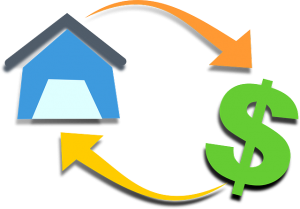With flexible business loans rapid growth and changes to demand in your business don’t have to stretch your resources
There is a range of flexible business loans available to suit different business needs from finance for business working capital, finance for purchasing a new business or franchise, buying or investing in commercial property, residential and commercial property development and equipment finance. You should talk to a loan specialist to find out more about structuring your business loan, term loans, cash-flow finance, home equity finance, hire purchase, and leasing finance.
A loan specialist will help you structure your business financial commitments to match your unique business needs to the right flexible business loans.
Overdraft and line of credit
A business overdraft is an ideal financial option to cover short-term finance needs, particularly seasonal requirements and unexpected expenses. A business overdraft operates as a line of credit facility that is most commonly used to cover working capital requirements.
Business overdraft facilities work by providing access to an agreed amount of money. You can draw down up to your limit at any stage, and there are no repayments required as long as the amount you have drawn down and the interest charged does not exceed your agreed limit.
The overdraft facility operates on a variable interest rate with a cheque account attached, and you may or may not need to provide security or collateral, depending on the lender.
Business loans and term loans
A business or term credit provides you with flexible business loans to finance when you need capital for purchasing a business, or additional capital for business expansion, major plant and equipment upgrades, or purchasing commercial property.
The flexible business loan types is in the credit type both fixed rate and variable rate business loans are available and you can usually choose to make principal and interest or interest only repayments.
Business loan terms vary widely between lenders, but can be as long as 30 years; the minimum loan amount you can borrow also varies widely so you will need to discuss your mortgage adviser.
You may be required to provide some form of security or collateral, such as residential or commercial property or business assets.
Cash flow finance
Cash flow finance provides your business with access to the money tied up in outstanding invoices, allowing you to continue meeting your working capital requirements in periods of fluctuating or irregular cash flow.
With cash flow finance your business will generally be able to access funds totalling up to 80 per cent of the value of your unpaid invoices, which is particularly useful during periods of rapid growth, business acquisitions or seasonal sales cycles.
The outstanding value of your invoices acts as security so there is no need to use residential or commercial property or sales goods to secure a cash flow finance facility.
Home equity loans
A home equity lets you borrow money, while using your house as collateral. Home equity loan is another option available to homeowners who may have a tight cash situation but have have a valuable house at their disposal, which they may sell and downgrade. But a home equity loan lets you get money out of your house, without having to lose it.

There are plenty of advantages: when your house is the collateral, the bank feels a lot more secure; they know you can’t exactly pack up your house and run away with it. Because there’s something they can foreclose on, banks consider home equity loans to be low-risk, secured loans. That means they charge a super-low interest rate, seldom above 1.3 per cent per annum. For reference, that’s less than a third of your CPF Ordinary Account rate (up to 3.5 per cent per annum), and about 1/6th of a personal loan rate (about six per cent per annum).
That super-low interest rate means home equity loans are quite cheap, and can provide a much bigger loan than you’d get through, say, a personal installment loan. This means home equity credit can be a great source for flexible business loans. Most other, unsecured loans can only lend you up to four times your monthly salary. If your house is already paid up, you can borrow up to half its value, without having to meet Total Debt Servicing Ratio (TDSR) restrictions.
Hire purchase
A hire purchase is a finance arrangement used to pay for goods over a period of time usually one-to-five years rather than paying the full cost upfront, with ownership retained by the financier until the hire purchase term is complete and you have made your final repayment.
At the end of the hire purchase term the title of the goods automatically passes to your business.
Repayments on a hire purchase can be quite flexible and are often tailored to your business needs, ideal if your business operates on irregular cash flow due to seasonal sales cycles.
Leasing finance
With leasing finance, a leasing company takes ownership of vehicles and equipment and then leases them out to your business for an agreed repayment amount and term, usually two to five years. Leasing finance may be ideal when you need vehicles or equipment that have long effective lives.
As a leasing finance agreement is a fixed rate, fixed term contract, it has the benefit of enabling you to effectively plan your finances over the leasing finance period. Lease payments are also usually tax deductible and you should be able to claim the GST proportion of your payments for tax purposes.






